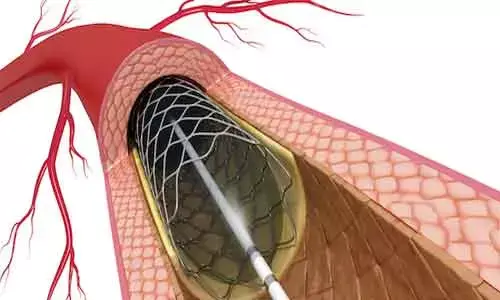- Home
- Medical news & Guidelines
- Anesthesiology
- Cardiology and CTVS
- Critical Care
- Dentistry
- Dermatology
- Diabetes and Endocrinology
- ENT
- Gastroenterology
- Medicine
- Nephrology
- Neurology
- Obstretics-Gynaecology
- Oncology
- Ophthalmology
- Orthopaedics
- Pediatrics-Neonatology
- Psychiatry
- Pulmonology
- Radiology
- Surgery
- Urology
- Laboratory Medicine
- Diet
- Nursing
- Paramedical
- Physiotherapy
- Health news
- Fact Check
- Bone Health Fact Check
- Brain Health Fact Check
- Cancer Related Fact Check
- Child Care Fact Check
- Dental and oral health fact check
- Diabetes and metabolic health fact check
- Diet and Nutrition Fact Check
- Eye and ENT Care Fact Check
- Fitness fact check
- Gut health fact check
- Heart health fact check
- Kidney health fact check
- Medical education fact check
- Men's health fact check
- Respiratory fact check
- Skin and hair care fact check
- Vaccine and Immunization fact check
- Women's health fact check
- AYUSH
- State News
- Andaman and Nicobar Islands
- Andhra Pradesh
- Arunachal Pradesh
- Assam
- Bihar
- Chandigarh
- Chattisgarh
- Dadra and Nagar Haveli
- Daman and Diu
- Delhi
- Goa
- Gujarat
- Haryana
- Himachal Pradesh
- Jammu & Kashmir
- Jharkhand
- Karnataka
- Kerala
- Ladakh
- Lakshadweep
- Madhya Pradesh
- Maharashtra
- Manipur
- Meghalaya
- Mizoram
- Nagaland
- Odisha
- Puducherry
- Punjab
- Rajasthan
- Sikkim
- Tamil Nadu
- Telangana
- Tripura
- Uttar Pradesh
- Uttrakhand
- West Bengal
- Medical Education
- Industry
Primary PCI equally effective in cancer patients with STEMI and those without cancer: Study

Delhi: Primary PCI is underused in cancer patients with active STEMI, despite it being associated with lower MACCE and in-hospital mortality just like in patients without cancer, reveals a recent study. The findings of the study are published in the European Heart Journal.
Primary percutaneous coronary intervention (pPCI) is thestandard of care for patients presenting with ST-elevation myocardial infarction (STEMI). However, the data on its use and effectiveness in cancer patients with active STEMI is limited. To fill this knowledge gap, Mamas A Mamas, Population Health Research Institute, Hamilton, Canada, and colleagues retrospectively analysed all STEMI hospitalizations between 2004 and 2015 from the National Inpatient Sample. They performed propensity score matching for estimating the average treatment effect of pPCI in each cancer on in-hospital adverse events, including major adverse cardiovascular and cerebrovascular events (MACCE) and its individual components.and compared treatment effect between cancer and non-cancer patients.
Key findings of the study include:
- Out of 1 870 815 patients with STEMI, 38 932 (2.1%) had a current cancer diagnosis [haematological: 11 251 (28.9% of all cancers); breast: 4675 (12.0%); lung: 9538 (24.5%); colon: 3749 (9.6%); prostate: 9719 (25.0%)].
- Patients with cancer received pPCI less commonly than those without cancer (from 54.2% for lung cancer to 70.6% for haematological vs. 82.3% in no cancer).
- Performance of pPCI was strongly associated with lower adjusted probabilities of MACCE and all-cause mortality in the cancer groups compared with the no cancer group.
- There was no significant difference in estimated average pPCI treatment effect between the cancer groups and non-cancer group.
"Primary PCI is underutilized in STEMI patients with current cancer despite its significantly lower associated rates of in-hospital all-cause mortality and MACCE that is comparable to patients without cancer. Further work is required to assess the long-term benefit and safety of pPCI in this high-risk group," wrote the authors.
The study titled, "Effect of primary percutaneous coronary intervention on in-hospital outcomes among active cancer patients presenting with ST-elevation myocardial infarction: a propensity score matching analysis," is published in the European Heart Journal.
Dr Kamal Kant Kohli-MBBS, DTCD- a chest specialist with more than 30 years of practice and a flair for writing clinical articles, Dr Kamal Kant Kohli joined Medical Dialogues as a Chief Editor of Medical News. Besides writing articles, as an editor, he proofreads and verifies all the medical content published on Medical Dialogues including those coming from journals, studies,medical conferences,guidelines etc. Email: drkohli@medicaldialogues.in. Contact no. 011-43720751


